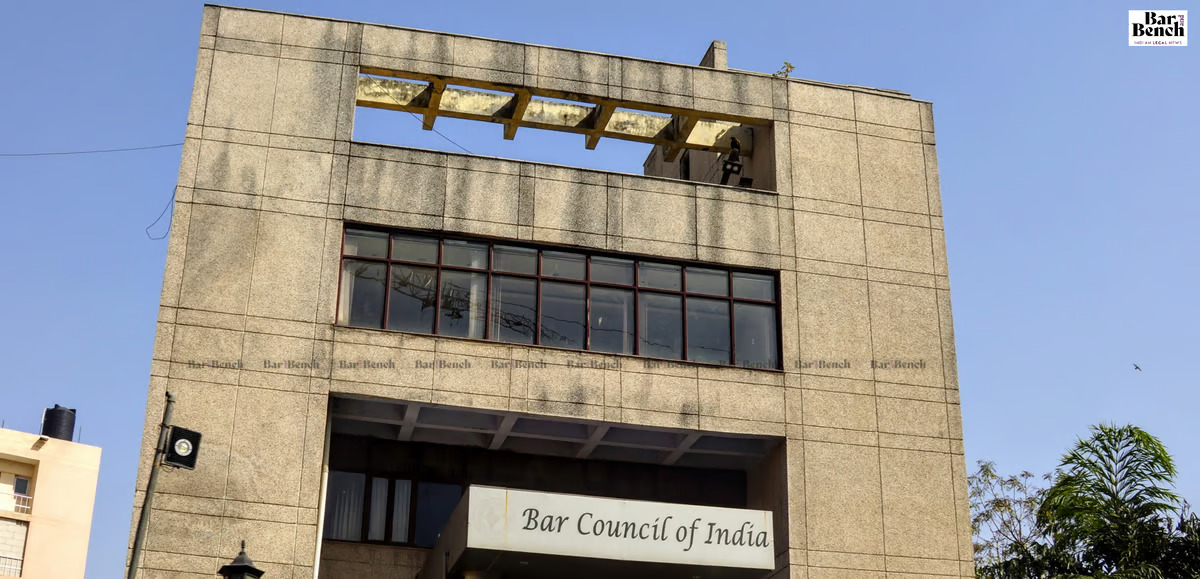The Bar Council of India (BCI), the governing body responsible for regulating legal education and the legal profession in India, recently made a significant move by prohibiting seven law colleges from admitting new students. This decision has stirred discussions across the legal and academic communities, highlighting the ongoing challenges in maintaining educational standards and ensuring quality legal education in the country.
The BCI’s Role and Decision
The BCI’s primary role includes setting standards for legal education, recognizing institutions imparting legal education, and ensuring that these institutions adhere to the prescribed norms and regulations. The prohibition on these seven law colleges is a reflection of the BCI’s commitment to upholding these standards and addressing any discrepancies that may arise.
Reasons Behind the Prohibition
- Non-Compliance with BCI Norms: The primary reason for the prohibition is the failure of these institutions to comply with the BCI’s regulations and standards. This includes inadequate infrastructure, lack of qualified faculty, and insufficient academic resources.
- Quality of Education: Concerns about the quality of education being imparted at these colleges have also been a significant factor. The BCI aims to ensure that all law graduates possess the requisite knowledge and skills to contribute effectively to the legal profession.
- Student Welfare: The decision also takes into account the welfare of the students. Enrolling in institutions that do not meet the required standards can hamper students’ academic growth and future career prospects.
Implications for Students and Institutions
For Students
- Uncertainty and Disruption: Current students at these colleges may face uncertainty regarding the continuation of their studies. They may need to transfer to other institutions, which can be a disruptive and stressful process.
- Reputation and Recognition: Graduating from an institution that has been prohibited from admitting new students can affect the perceived value of their degree. It may impact their prospects for internships, placements, and further education.
- Financial and Emotional Stress: The decision can lead to financial strain for students who may have to incur additional costs for transferring to other colleges. The emotional toll of dealing with such an unexpected change is also considerable.
For Institutions
- Reputation Damage: Being prohibited from admitting new students is a significant blow to the reputation of the affected institutions. It reflects poorly on their ability to provide quality education and maintain necessary standards.
- Need for Overhaul: These colleges will need to undertake substantial measures to address the deficiencies pointed out by the BCI. This may involve investing in infrastructure, hiring qualified faculty, and improving academic resources.
- Financial Impact: The prohibition will likely have a financial impact on these institutions, as the influx of new students is a primary source of revenue. They will need to find alternative ways to sustain their operations while addressing the issues at hand.
Broader Implications for Legal Education in India
The BCI’s decision highlights several broader issues within the realm of legal education in India:
- Quality Assurance: It underscores the importance of stringent quality assurance mechanisms in legal education. Ensuring that all institutions adhere to high standards is crucial for producing competent legal professionals.
- Regulatory Oversight: The decision reflects the need for robust regulatory oversight to monitor and address non-compliance effectively. Regular audits and evaluations can help identify and rectify issues before they escalate.
- Student-Centric Approach: The welfare of students must be a priority. Regulatory bodies and institutions need to work together to ensure that students receive a high-quality education that prepares them for the demands of the legal profession.
Moving Forward: Ensuring Quality Legal Education
For the BCI
- Continued Vigilance: The BCI must continue to monitor institutions and take timely action against those that fail to meet the required standards. Regular inspections and evaluations can help maintain the quality of legal education.
- Support for Improvement: Providing support and guidance to institutions to help them meet the necessary standards is essential. This can include training programs, resources for faculty development, and infrastructure grants.
For Institutions
- Commitment to Standards: Institutions must prioritize compliance with regulatory standards and continuously strive to improve the quality of education they offer. Investing in infrastructure, faculty development, and academic resources is crucial.
- Focus on Student Welfare: Ensuring that students receive a high-quality education and have access to necessary resources and support systems is essential. Institutions must create a conducive learning environment that promotes academic and professional growth.
Sponsored
FACTS Transcripts
Apply for a University document anywhere
https://www.factstranscript.com
Quick Transcripts for popular Universities, check your University name now and get started. We help you to get your transcript application online which is accepted for use of IRCC.
No DD, NO Paperwork. 100% Authentic, Reliable.
FACTS Transcripts Charges · Reviews · Assam Universities · Home · Know your University









